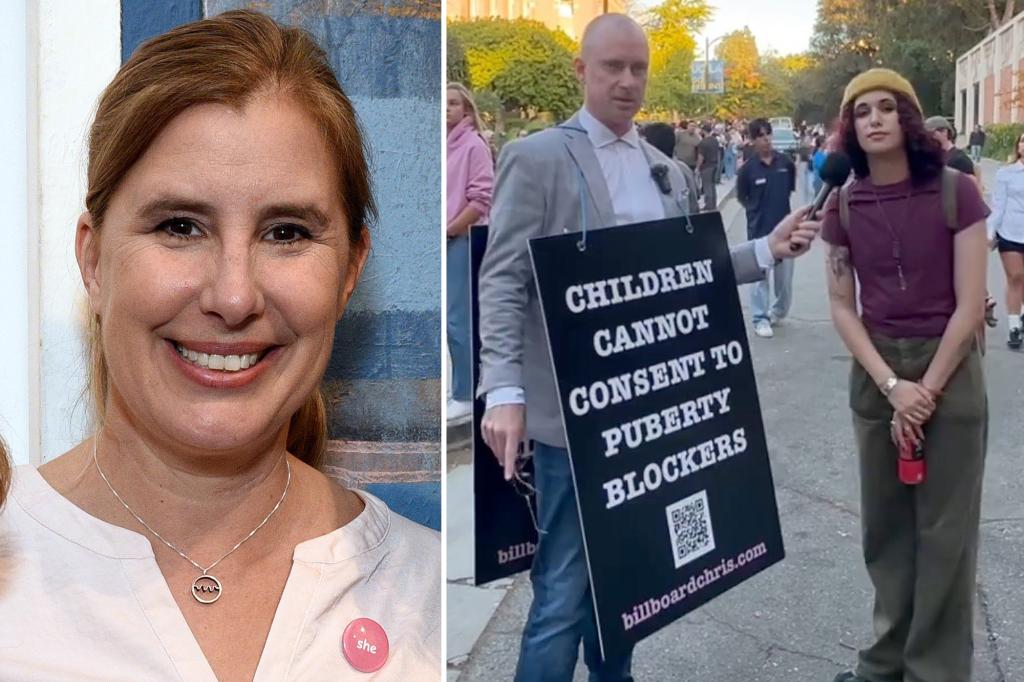Clementine Breen’s lawsuit against Dr. Johanna Olson-Kennedy paints a stark picture of a young person allegedly rushed into irreversible medical interventions to transition genders, raising profound questions about the adequacy of safeguards protecting vulnerable minors seeking gender-affirming care. Breen, now 20, alleges that Olson-Kennedy, a prominent figure in trans youth healthcare, failed to provide proper psychological evaluation and oversight before prescribing puberty blockers at age 12, initiating hormone therapy at 13, and performing a double mastectomy at 14. This rapid progression of medical interventions, Breen contends, occurred without a thorough exploration of underlying mental health issues or potential alternative explanations for her feelings of gender dysphoria. The lawsuit highlights the potential for long-term physical and emotional consequences when medical transition proceeds without adequate assessment and informed consent, particularly in young individuals whose identities are still developing.
Breen’s experience underscores the complex interplay between gender identity, mental health, and trauma. According to the lawsuit and Breen’s account, her initial questioning of her gender identity at age 12 coincided with unresolved trauma stemming from childhood abuse and a challenging family environment. The lawsuit alleges that rather than exploring these potential contributing factors, the school counselor immediately labeled Breen as transgender and referred her parents to Olson-Kennedy’s clinic. This swift action, Breen argues, bypassed crucial steps in understanding the root causes of her distress and exploring alternative support options. The lawsuit raises concerns about the potential for misdiagnosis and inappropriate treatment when underlying trauma or mental health conditions are not adequately addressed before embarking on a path of medical transition.
The lawsuit also raises questions about the role of parental consent in medical decision-making for minors seeking gender-affirming care. While Breen’s parents were involved in the process, the lawsuit alleges that Olson-Kennedy exerted undue influence by falsely claiming Breen was suicidal to secure their consent for hormone therapy. This allegation points to a potential power imbalance between medical professionals and parents navigating the complex landscape of trans healthcare for their children. Parents, often relying on the expertise of medical professionals, may feel pressured to consent to treatment even when harboring doubts or lacking full understanding of the potential risks and long-term consequences.
The controversy surrounding Olson-Kennedy extends beyond Breen’s individual case. She has faced criticism for her handling of a taxpayer-funded study on the effectiveness of puberty blockers in improving the mental health of transgender youth. The study, reportedly costing $10 million, allegedly found no significant mental health benefits from puberty blockers, yet Olson-Kennedy has been accused of withholding these findings from public dissemination. This raises concerns about transparency and potential conflicts of interest within the field of trans youth healthcare. Critics argue that withholding research findings, particularly when they challenge prevailing treatment paradigms, can impede scientific progress and potentially harm patients by perpetuating treatments with unproven efficacy.
Breen’s decision to pursue legal action reflects a growing wave of “detransitioners”—individuals who have undergone medical transition and later regret their decision—coming forward to share their stories. These narratives often highlight the physical and emotional toll of irreversible medical interventions, including potential infertility, altered physical appearance, and ongoing mental health challenges. Breen’s case, like others, underscores the need for comprehensive long-term studies on the effectiveness and potential risks of medical transition, especially for young people whose bodies and identities are still in flux.
The lawsuit filed by Clementine Breen against Dr. Johanna Olson-Kennedy serves as a critical examination of current practices in trans youth healthcare. It raises fundamental questions about the adequacy of psychological assessments, the role of parental consent, and the transparency of research within the field. Breen’s story highlights the urgent need for a nuanced and evidence-based approach to supporting transgender and gender-questioning youth, ensuring that all available options are explored, potential risks are fully understood, and the long-term well-being of these vulnerable individuals is prioritized. Her case underscores the importance of open dialogue, critical evaluation of existing practices, and a commitment to ongoing research to ensure that the care provided to transgender youth is both safe and effective.

